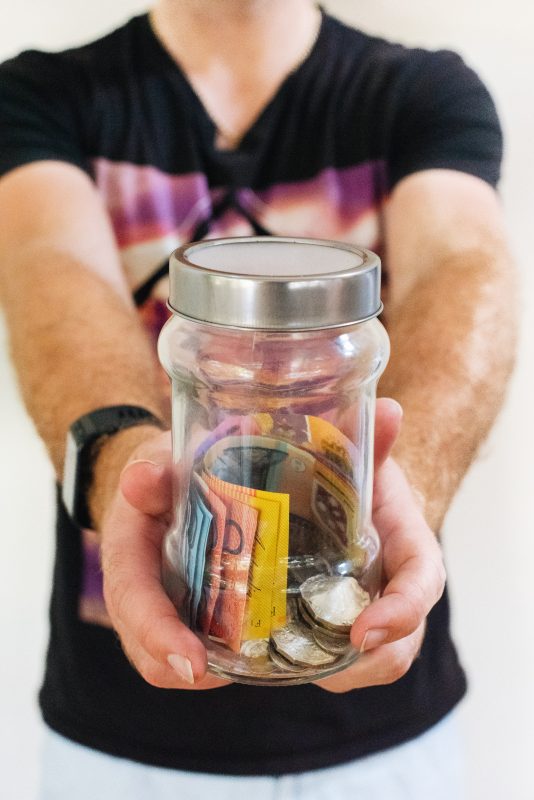Introduction:-
India is a developing economy. The speed of business is increasing day by day. As a result of this the volume of transactions is increasing at an equal speed. But along with these growth sectors there runs a parallel economy of corruption and money laundering. These sectors hinder the growth of the economy as a whole and can also cause market fluctuations. Thus, the Government of India along with its ancillary bodies is making reforms to overcome these national threats.
Money laundering is a process through which the illegal source of money is disguised through a number of transactions. The money laundering act, 2002 was introduced to curb such practices. Along with this Act, reforms were required to be made in other areas as well.
Section 269ST of the Income Tax Act, 1961 was introduced in the Finance Act, 2017 with an objective to reduce the cash transactions in order to reduce and eventually stop the illegal sources of cash transactions.
Provisions of the Section:-
As per Section 269ST of the Income Tax Act, 1961.—No person shall receive an amount of two lakh rupees or More
(i)In aggregate from a person in a day, or
(ii)In a single transaction, or
(iii)In respect of transactions relating to one event or a single occasion from a person
otherwise than by an account payee cheque or an account payee bank draft or use of electronic clearing system through a bank account:
Understanding the section
Before the implementation of the Section 269 ST, the section 269SS and Section 269T were in effect with the same objective to restrict the transactions involving black money. However, the ambit of the aforesaid provisions was limited, Hence a new section 269ST was inserted in the act.
Section 269ST of the Income Tax Act will be attracted in the following situations-
1) If a person receives more than Rs. 2,00,000 in aggregate from another person / individual in a day. However, a person may receive an amount below Rs. 2 Lakhs in cash in a day from an individual.
72,000, Rs. 28,000 RS. 25,000 Rs. 1,75,000. If Mr. B is willing to pay for all the goods to Mr. A, he can only pay an amount less than Rs. 2,00,000 in cash in a single day, the balance amount can only be paid through bank or other non-cash medium such as account payee cheque account payee bank draft, etc.

2) Cash receipts above Rs. 2 lakh relating to a single bill or transaction
Explanation: – Consider MR. X and co selling its goods to Mr. Y worth Rs. 2,90,000 in a single transaction. If Mr. Y proposes to honor the payment of the goods in 5 equal installments of Rs. 58,000 in cash each over a month’s time, MR. X and company cannot accept the same as the transaction value is crossing rupees 2 Lakhs.
3) If an individual receives cash from multiple small and different transactions but is related to a single occasion or event, the person on the receiving end cannot accept cash above Rs. 2,00,000. However, they may do so through an account payee cheque, an account payee bank draft or the use of an electronic clearing system through a bank account.
Explanation:- Let us take an example of a Catering business. If a cater receives an order to provide food for a wedding procession. The food will be provided for 2 days 3 times a day. Now if the caterer provides the bill to his client for each day and if the amount of such bills are crossing the limit of Rs. 2,00,000 the caterer cannot accept such amount in cash exceeding Rs. 2,00,000 as the invoices are relating to the same event.
Exceptions
Section 269ST is not applicable for the following transactions.
- Transactions involving the following
- Government
- Any Banking Company
- Any post office savings bank
- Any co-operative Bank
- Other persons/receipts as may be notified
- Transactions that are in the nature as mentioned in Section 269SS of the Income Tax Act, 1961.
Penalties
If a person other than the above mentioned persons in the exceptions receives any amount above RS. 2,00,000 would be considered a defaulter as per the section. Thus, it is very important that a person ensures that they do not receive cash of Rs.2 lakh and above in a single transaction, aggregate from a person in a day, or in respect to transactions relating to one event or occasion from a person. If a person receives the amount in cash over the above specified limit of Rs.2 lakh, he is liable to pay a penalty equal to the amount received in cash.
Section 269ST is one of the many initiatives taken by the government to overcome the problem of black money and corruption. Not only this section will help to overcome the problem of money laundering but it can also help to inculcate a habit of carrying on non-cash transactions which are beneficial to the economy as a whole.
Kartik M Jain & Associates, CA in Pune is a professionally managed firm serving domestic and international clients providing services relating to direct and international taxation, indirect taxation, auditing and assurance and Consultancy. It is amongst the best CA firms in Pune. Our sister Firm, Payal K Jain & Associates, a Company Secretary in Pune provides services in relation to Company Formation in Pune and across India, Corporate Law and Compliance, ROC filings, FEMA, Trademark Registration, etc.
Our Services :- GST consultation, Chartered accountant, Income Tax consultancy, Corporate law, International Taxation, Transfer Pricing, Regulatory & Advisory Services.


